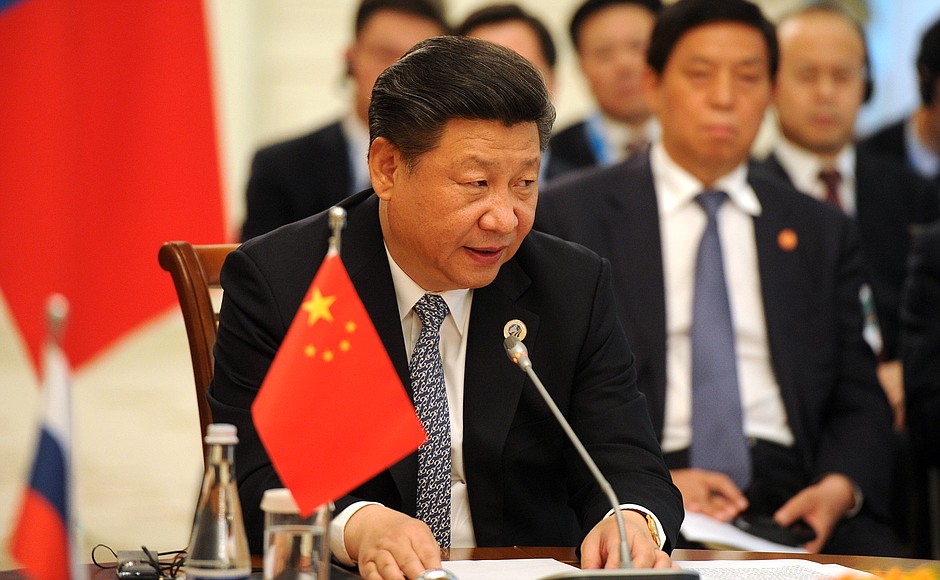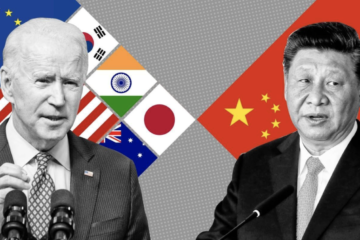In his essay Politics and the English Language, George Orwell diagnosed the problem of Modern English as the following: “It becomes ugly and inaccurate because our thoughts are foolish, but the slovenliness of our language makes it easier for us to have foolish thoughts. The point is that the process is reversible.” This idea of the interchangeable relationship between the cause and effect applies equally to many of today’s diplomatic crises. The significance of identifying the right causes and predicting their realistic impacts in international politics is thus soaring, and they can only be achieved by using a sharper thinking and clearer understanding learned from history and philosophy. The first step of all these is, however, to set up an effective premise, for the premise affects the perceived causes and ultimately changes the expected results.
Regarding the issues of North Korea and its nuclear development, Louis Helsby’s article analysing President Trump’s approach to the North Korean question provides an excellent explanation of the situation and insights on some acceptable scenarios to the readers. The author’s two concise questions can summarise the entire writing:
- “Are the present tensions Trump’s fault or are they a consequence of North Korea’s advancing nuclear program?
- “Will the US current strategy of a mixture of threatening ‘fire and fury’ and more circuitously pressing further restrictive sanctions via the UN and looking to China actually achieve any tangible gains in the form of denuclearization…?”
The article blames North Korea, yet it concludes that the US cannot change the status quo.
Misguided militarism
Despite the article’s excellence, this description is nonetheless caught up in Orwell’s trap. North Korea is indeed responsible for the current situation and the US is merely reacting to it. However, the article focuses solely on the preemptive strike of the US without evaluating the possibility of diplomatic solutions; after all, all three reasons for US incapability consider the scenarios that presuppose a total destruction of the North Korean regime. The supposed incompetence of US strategy is based on misguided militarism that reinforces the causes and complicates the circumstance. While it is easy to think superior weapons can eliminate the root of this entangled situation, the starting point of solving the problem should be a sensible and effective negotiation, not an apocalyptic war. Today’s world is different from when the sword of Alexander the Great cut the Gordian Knot.

Many questions on the details of the dialogue among the nations at stake have already arisen. A considerable number of pundits even have doubts about the possibility of its initiation. One possible approach to the situation should therefore begin by further strengthening the international sanctions against North Korean nuclear advancement. The US and its allies can also employ strategic threats based on the “madman theory”. Once North Korea appears at the negotiation table, South Korea, China, and the US must be prepared to discuss everything related to current crisis and to derive a powerful and committed agreement. For the demand of permanent denuclearisation and the peace treaty among the related nations, North Korea’s priorities will include the guarantee of their regime’s perpetual safety and the eventual disconnection of South Korea-US alliance.
The importance of China
While the list of both sides’ conditions is incomplete, Chinese cooperation is crucial for all these steps. Aurelius Noble’s article on China’s role in all of this explores deeper into the perplexing connection between China and North Korea and suggests the limited Chinese influence on North Korean actions. This notion comes from that North Korea will not move according to China’s interest as the distance between Beijing and Pyongyang is greater than ever and that China will not be able to push North Korea further by stronger sanctions as the dissolution of the North Korean regime will be a critical loss for China, not for the US. Nevertheless, China can still pull the trigger that gives the regime the incentives to participate in the conversation without escalating the level of embargo till the point where China is worried about. A subtler approach is necessary at this point.
Concepts and actualities of the relationship between the US and China reveal themselves at this point. The greatest dilemma for the grand strategy of China lies in the calibration of what is desirable and what is possible between cooperation and confrontation with Washington. Taking the position of the US as the hegemon of the world requires a sustainable economic growth supported by the US and its allies.
With US assistance, South Korea also has a number of options that can induce Chinese cooperation. For an extensive period of time, South Korea has had a burdensome yet effective tool for both North Korean provocation and Chinese negligence: Terminal High Altitude Area Defense (THAAD). South Korea experienced some economic disadvantages posed by China because of the introduction of the system to the peninsula, yet it managed to transform the risk into a leverage for changing the attitude of China at least partially. South Korea’s room for manoeuvre will therefore depend on what decision North Korea will make and to what extent is the US willing to provide; purchasing the cutting-edge arsenals of the US or redeploying US strategic nuclear weapons to South Korea are some of the possible alternatives South Korea can choose.

Going back to Orwell’s discourse, the premise that threatening actions and constructive conversation towards North Korea cannot proceed simultaneously is neither precise nor helpful. Deliberate nuances of preemptive strike can and should be the vehicle for more effective messages and stronger coercion to North Korea, yet they should not be an end in itself. No matter how many people think of employing military solutions as an undebatable strategic achievement, diplomacy’s sole objective is to secure the greatest level of benefits without breaking the negotiation and bearing too much damage. Establishing an audacious while feasible goal by peacefully differentiating expectations from the reality is the most imperative virtue of every statesman; as opposed to a mere hope for the North Korean regime’s downfall, the goal should be its complete denuclearisation.
G.W.F. Hegel once wrote: “The owl of Minerva spreads its wings only with the falling of the dusk.” The statement’s seemingly intricate definition relates to his philosophy of history: it is both natural and desirable that human beings are able to understand the underlying logic of historical progress only after its final phase. Many of the political circumstances are nevertheless impatient to judgments made post factum. Specifically, an unrestricted application of Hegel’s quote in analysing and dealing with the North Korean crisis will be a vivification of abuse as well as irresponsibility. Constitution of a vigilant roadmap and exchange of shrewd thoughts are the keys to address today’s uneasy stalemate among the pompous yet anxious powers. As David Brooks put it, “the perpetual tragedy of life [is that] the owl of Minerva flies at dusk.”


